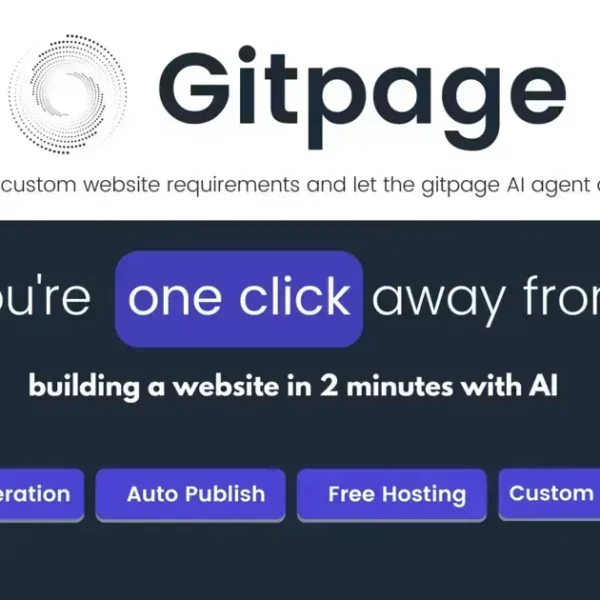CRM pricing varies based on features, user count, and deployment options. To get the best deal, compare plans, understand your needs, and negotiate wisely, avoiding common pitfalls like hidden costs and lack of scalability.
CRM pricing plays a crucial role in determining the success of a business. Selecting the right plan can help optimize your customer relationship management, ensuring you get the best value. In this article, we will delve into various aspects of CRM pricing, including what structures exist, factors affecting these prices, and tips on avoiding common pitfalls.
Understanding CRM Pricing Structures
Understanding CRM Pricing Structures is essential for businesses looking to optimize their customer relationship management. CRM pricing plans vary widely, and comprehending their structures helps in choosing the right one for your needs.
Types of CRM Pricing Structures
Most CRM systems offer several pricing models, such as subscription-based, tiered pricing, and pay-per-user schemes. Subscription-based models charge a monthly or annual fee and usually provide consistent access to features. Tiered pricing allows businesses to choose a plan based on features suited to their size and needs, and pay-per-user charges are applied when businesses only pay for the number of users accessing the system.
What Do You Get with Each Pricing Model?
Each pricing structure may come with different features and support options. For instance, lower-tier plans might offer limited features while higher-tier plans often include advanced functionalities and better customer support. Knowing what is included in each plan helps prevent overspending and ensures you’re getting the necessary tools.
Evaluating Your Business Needs
Evaluating your business size, objectives, and customer management needs can guide you in selecting the best pricing structure. Consider how many users will need access to the CRM and which specific features are essential to your operations. A good practice is to assess your current customer management processes and identify improvements that a CRM can bring.
Flexibility in CRM Pricing
Many CRM providers offer flexibility in their pricing structures, allowing businesses to scale their plans based on growth or changing needs. It is important to look for options that let you upgrade or downgrade plans easily, as this adaptability can save you money in the long run.
Understanding CRM pricing structures thoroughly ensures you make an informed decision as you invest in CRM solutions, thereby enhancing your customer relations and business operations.
Factors Influencing CRM Pricing

Factors Influencing CRM Pricing are crucial for businesses to understand when selecting a customer relationship management system. Various elements can drive the cost of CRM solutions, impacting your overall investment.
1. Features and Functionalities
The range of features included in a CRM system can significantly influence its price. Basic plans may offer fundamental tools like contact management, while more advanced ones can include automation, analytics, and integrations with other platforms. Businesses need to assess which features are essential to their operations to avoid paying for unnecessary options.
2. Number of Users
The number of users accessing the CRM also affects pricing. Many CRM providers charge per user, meaning the more employees that use the system, the higher the overall cost. It is important to analyze how many users will genuinely need access and evaluate licensing options for different team sizes.
3. Deployment Options
CRM systems can be offered as cloud-based or on-premise solutions, impacting the pricing. Cloud-based CRMs typically operate on a subscription model and can be more cost-effective due to lower initial setup costs. On-premise solutions, however, may require additional hardware and IT resources, which can lead to higher upfront expenditures.
4. Level of Support and Training
The level of customer support and training provided can influence the cost of CRM solutions. Premium plans often come with dedicated support teams, training resources, and ongoing assistance, which can enhance user experience and implementation success. Understanding the support options available can help in pricing evaluation.
5. Customization and Integration Needs
Customization and integration with existing software can increase CRM pricing. If your business requires a tailored CRM experience or needs integrations with other tools, be prepared for additional costs. It is essential to discuss customization options during the selection process to anticipate potential price increases.
By recognizing these factors influencing CRM pricing, businesses can make informed decisions. This knowledge not only aids in budget management but also ensures that the chosen CRM aligns well with specific business needs.
Comparing CRM Pricing Plans
Comparing CRM Pricing Plans is essential for businesses aiming to maximize their investment in customer relationship management systems. Several factors must be assessed to determine the best fit based on your unique needs.
1. Understanding Different Plans
CRM providers typically offer various plans, ranging from basic to advanced. Basic plans often include essential features like contact management and customer support, while advanced plans may offer automation, analytics, and integration options. Familiarizing yourself with each plan’s offerings helps in making informed comparisons.
2. Evaluating Features
When comparing pricing plans, focus on the features included. Key features to consider are user management capabilities, reporting tools, lead tracking, email marketing integration, and mobile access. Identify which features are most critical to your operations and ensure they are present in the plan you choose.
3. Cost vs. Benefits
It’s important to weigh the costs of each plan against the benefits it provides. While a higher-priced plan may seem expensive, the additional features and support offered might lead to greater efficiency, saving time and money in the long run. Always look for a plan that aligns with your budget while still meeting your business needs.
4. Free Trials and Demos
Many CRM providers offer free trials or demos, allowing businesses to test features before making a commitment. Utilize this opportunity to explore the user interface, assess ease of use, and determine if the solution meets your expectations. Take notes during the trial period about which features you find beneficial.
5. Feedback from Current Users
Gathering feedback from existing users can provide valuable insights into the user experience and support quality of different CRM plans. Look for online reviews or forums where users share their experiences. This information can highlight potential drawbacks or advantages of specific pricing plans.
Comparing CRM pricing plans thoughtfully enables businesses to select a solution that not only meets their current needs but also supports their growth over time. By taking a methodical approach, you can ensure that you invest wisely in a CRM system that enhances your customer management processes.
Tips for Negotiating CRM Prices

Tips for Negotiating CRM Prices can help businesses secure the best deal while investing in customer relationship management solutions. Effective negotiation can lead to better pricing, terms, and features that align with your needs.
1. Research Your Options
Before entering negotiations, thoroughly research multiple CRM providers and their pricing structures. Understanding the average price range for similar services gives you a strong foundation when discussing costs. This knowledge empowers you to make informed comparisons and identify realistic offers.
2. Leverage Competition
Use competition to your advantage. If you have quotes from different CRM providers, mention them during negotiations. This can create a sense of urgency and encourage the provider to offer a better deal to win your business.
3. Know Your Budget
Having a clear understanding of your budget is crucial. Determine how much you can realistically spend on a CRM solution and communicate this during negotiations. Being upfront about your budget can help set expectations on both sides and focus discussions on what’s feasible.
4. Ask for Discounts and Incentives
Don’t hesitate to ask for discounts or incentives, especially if you are willing to commit to a longer-term contract. CRM providers may offer price reductions or additional features for extended commitments, which can lead to significant savings.
5. Highlight Referral Opportunities
If your business can refer other potential clients to the CRM provider, mention this during negotiations. Providers often value opportunities for referrals and may offer a better price in exchange for your business’s ability to spread the word about their services.
By applying these tips for negotiating CRM prices, you can enhance your chances of securing a favorable deal. Effective negotiation is key to optimizing your investment while ensuring that the CRM solution chosen meets your business needs.
Common Pitfalls in CRM Pricing
Common Pitfalls in CRM Pricing can lead businesses to make costly mistakes when choosing a customer relationship management solution. Knowing these pitfalls can help you avoid unnecessary expenses and ensure a better fit for your needs.
1. Overlooking Hidden Costs
Many CRM providers advertise low base prices but fail to mention extra fees for add-ons, upgrades, or additional users. Be sure to review the entire pricing structure, including any hidden costs, to avoid unexpected expenses down the road. Always ask for a complete breakdown of what each plan includes.
2. Failing to Assess Your Needs
Choosing a CRM solution without thoroughly assessing your business requirements can lead to purchasing an overly complex system. A tool with too many features may overwhelm your team and become underutilized. Identify what functionalities your business genuinely needs to select the most appropriate plan.
3. Not Considering Scalability
Businesses often underestimate their future growth, resulting in a CRM that cannot scale with their needs. Select a pricing plan that allows you to seamlessly upgrade as your team expands or your business requirements change. This foresight can save you from having to switch CRMs later on.
4. Ignoring User Feedback
Ignoring feedback from your team members who will be using the CRM can be a major pitfall. Their input is crucial for selecting a system that is user-friendly and meets daily operational needs. Consider conducting a survey or focus group to gather insights on what features are most important to them before making a final decision.
5. Neglecting Support and Training Needs
A major oversight in CRM pricing decisions is not considering the level of support and training provided. Without proper training, employees may struggle to adapt, leading to wasted resources. Ensure the cost of training and ongoing support is included in your budgeting process to facilitate smooth implementation.
By being aware of these common pitfalls in CRM pricing, organizations can make more informed decisions, optimizing their investment while enhancing customer relationship management efforts.
In Summary: Making Informed Decisions on CRM Pricing
Understanding CRM pricing is essential for businesses that want to enhance customer relationships and streamline their operations. By evaluating the various pricing structures and recognizing the factors that influence costs, businesses can select the right CRM at a price that fits their budget.
It is also important to compare different pricing plans, negotiate effectively, and avoid common pitfalls that can lead to overspending or selecting the wrong solution.
By taking the time to research and assess your unique needs, your business can find a CRM solution that not only meets current requirements but also grows with you in the future. The right choice will help your business build stronger customer connections and drive success.
FAQ – Frequently Asked Questions about CRM Pricing
What factors affect CRM pricing?
CRM pricing is influenced by features included, number of users, deployment options, support levels, and customization needs.
How can I negotiate better CRM prices?
Research different providers, leverage competition, know your budget, and request discounts or incentives to improve your negotiation position.
What are common pitfalls in CRM pricing decisions?
Common pitfalls include overlooking hidden costs, failing to assess your needs, not considering scalability, ignoring user feedback, and neglecting support and training.
Why is it important to compare CRM pricing plans?
Comparing plans helps ensure you choose a CRM that meets your specific needs at the best price, maximizing your investment.
Can I change my CRM plan as my business grows?
Many CRM providers offer scalable solutions, allowing you to upgrade or change your plan based on your growing business needs.
What should I look for in a CRM free trial?
During a free trial, evaluate the user interface, features, ease of use, and how well it meets your team’s requirements.




